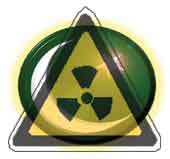
ISLAMABAD - The father of Pakistan's atomic bomb and another nuclear scientist have become the key suspects as a government probe into the illegal sale of nuclear technology to Iran draws to a close, intelligence officials said Monday.
The officials said Abdul Qadeer Khan, the man who developed the bomb Pakistan tested in 1998 and became a national hero as a result, was under house arrest while a second scientist, Mohammad Farooq, was being detained elsewhere for questioning.
Investigations were launched in late November after the UN nuclear agency began investigating links between Pakistani and Iranian nuclear programs, and officials said they had been narrowed down to two main suspects.
"They are Qadeer and Farooq," said one intelligence official, who did not want to be identified, adding that Khan's movements were restricted. "No one is allowed to meet him."
The government said in last month that Khan, who is revered as a national hero in Pakistan, was among those being questioned, but stressed that he was not under arrest or facing restrictions.
Information Minister Ahmed Sheikh Rashid declined to comment on whether the investigation had reached a conclusion, but said the government was meeting on the nuclear issue and expected to issue a statement in the evening.
Interior Minister Faisal Saleh Hayat told reporters in Karachi that questioning of several scientists had been completed and that of others was still going on.
He said those responsible for proliferation could not be called patriotic Pakistanis.
"There was a time when they used to call themselves heroes of Pakistan. But now the real face of some these heroes is being exposed," he said.
"The nation has the right to see their real faces because they have used Pakistan's assets for individual gains."
Asked if Khan could face punishment, he replied: "Anyone involved will be held responsible."
Farooq is the director of procurement at Khan Research Laboratories, Pakistan's main nuclear weapons laboratory named after A.Q. Khan. The plant produces enriched uranium, a key ingredient in nuclear weapons.
Pakistan launched the probe into Khan and other scientists after the UN's International Atomic Energy Agency (IAEA) provided information suggesting Pakistanis helped Iran develop centrifuges to make enriched uranium.
President Pervez Musharraf said last week it appeared some Pakistani scientists had been involved in nuclear proliferation for personal financial gain, but insisted there had been no government involvement.
He said violators faced stern action as "enemies of the state." The intelligence officials said those found guilty of exporting nuclear technology could face charges of treason.
The IAEA said Saturday it was working with Pakistan to trace and cripple a sophisticated underworld thought to be helping countries with clandestine nuclear weapons programs.
The United States suspects Iran of seeking to build a nuclear bomb under cover of an atomic energy program that Tehran insists is purely peaceful.
Western diplomats have said Pakistani scientists may also have sold nuclear technology to both Libya and North Korea.
The countries' nuclear programs have intensified Western worries that one or more could join the "nuclear club," although Libya announced late last year it would cooperate with the United States and Britain in dismantling its weapons program.
Last week two Dutch ministers said there were "indications" North Korea and Libya may have acquired potentially arms-related nuclear technology developed by British-Dutch-German consortium Urenco that both Pakistan and Iran are known to possess.
A.Q. Khan worked for Urenco in the 1970s. After his return to Pakistan in the 1980s, he was sentenced in absentia by an Amsterdam court to four years' jail for attempted espionage, a verdict later overturned on appeal.
PIN/REUTERS
News ID 13536

Your Comment